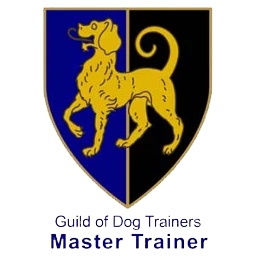Struggling to know what and how much exercise your dog needs? We have collated a guide to dog exercise including the benefits, which breeds need more exercise and which need less and how to incorporate exercise for different ages! Read our guide to find out more.
- Benefits of Exercise for Dogs
- How Much Exercise Does My Dog Need?
- Types of Dog Exercises
- Do Different Breeds Need Different Exercises?
Benefits Of Exercise for Dogs
We know that dogs need exercise, but what are the benefits? There are many reasons why consistent exercise is beneficial for you and your dog, including:
- Improving quality of life
- Reduced risk of health issues including chronic diseases
- Increase muscle strength and joint mobility
- Maintain a healthy weight to avoid obesity in dogs
- Strengthen your bond
- Reduce injury risk
- Reduce behaviour problems
- Maintains mental stability and stimulation
- Improved mood and decreased anxiety
- Increase socialisation and familiarity with different environments
- Maintains or improves healthy digestion
- Maintains dog training
How Much Exercise Does My Dog Need?
Exercise For Puppies
As a general rule, puppies should have 1–2 sessions of exercise per day, with the duration being 5 minutes for every month of their age. It is important to not over-exercise growing puppies because it can have harmful effects on their development, including muscles and joints. You should avoid long walks and hiking in those early months as you will make your puppy over tired.
Exercise For Adult Dogs
You should aim for a minimum of 30 minutes of exercise per day for adult dogs, regardless of the breed. The exercise can be an outdoor walk, consistent indoor playtime or outside in the garden.
If your dog is overweight or hasn’t been exercising consistently for a while, then you may need to rebuild their fitness levels back up. If not, you could risk over-exercising and doing more harm than good to their health and joints.
Exercise For Senior Dogs
When it comes to exercise for senior dogs, it is still recommended they get at least 30 minutes of exercise per day. This will help keep your dog healthy for their age and give them the mental stimulation they need.
However, exercising for older dogs may look a little different. They may be slower and get fatigued more quickly, so you may need to opt for lower impact (such as swapping out running for walking) or taking a break.
If your dog has developed any chronic health issues such as arthritis, please follow the individual guidance given to you by your vet.
Types Of Dog Exercises
There are many ways you can get your dog exercising, which all contribute to their daily requirements. These include:
- Walking
- Jogging
- Hiking or incline walking
- Sprints or long-distance running
- Obstacle courses
- Agility courses
- Circuit training
- Recall exercises such as fetch
- Swimming
However, exercising with your dog can be difficult to fit into a routine, and it’s easy to fall into the trap of it being a mundane task for both of you. There are several things you can do that make it more enjoyable, including:
- Mixing up the routine
- Introduce more playtime
- Explore different areas
- Teach your dog new tricks and commands
Do Different Breeds Need Different Exercises?
It’s easy to generalise what dogs need when it comes to exercise, but it is important to take into consideration personality, age, and breed. Some dog breeds are naturally more energetic than others and require more frequent exercise.
Dogs Breeds That Require A Lot Of Exercise
Some breeds are more energetic than others, with some breeds requiring more exercise due to their history or the requirement to do endurance jobs.
Breeds that need more exercise include:
- Border Collie
- Border Terrier
- Boxer
- Cairn Terrier
- Cocker Spaniel
- German Shepherd
- Golden Retriever Dalmatian
- Labrador Retriever
- Miniature Schnauzer
- Shetland Sheepdog
- Siberian Husky
- Springer Spaniel
- Staffordshire bull terrier
- Whippet
However, even though they need to do more daily, some breeds require it to be more in a short space of time or split out over the day. You can try different routines to see what your dog reacts to well, or if you need to switch it up for the best results.
Dog Breeds That Require Small Amounts Of Exercise
Some breeds require minimal amounts of exercise to be happy and healthy. You should consider a more low-maintenance breed if you have less free time to get out and about for lots of walks every day. These include:
- Boston Terrier
- Bull mastiff
- Cavalier King Charles Spaniel
- Chihuahua
- Daschund
- French Bulldog
- Mastiff
- Poodle
- Shih Tzu
How Much Exercise Does A Cocker Spaniel Need?
A cocker spaniel is one of the more energetic breeds that require more exercise, with a recommended minimum of 1 hour and a maximum 2 hours. You can also split this up throughout the day and incorporate play for mental stimulation and avoid boredom.
How Much Exercise Does A Border Collie Need?
A border collie dog is an active, energetic dog breed that requires a lot of activity and exercise every day. It is recommended for these dogs to have at least 2 hours of exercise per day, sometimes more, so you will need to have time to commit to this.
Do Seasons Affect How Much Exercise Your Dog Needs?
No, most dog breeds will need exercise daily and all year round, no matter what the weather. Depending on the dog, you may notice a change in energy levels with changes in the climate, however, they will also be happy to leave the house for walks in most conditions.
You should keep track of any behaviour changes and try to incorporate more exercise indoors or in the garden if they’re reluctant to go outside or showing signs of distress. It is recommended to avoid extreme weather conditions that can harm their health and try to work around it, for example, go out for a walk early in the morning or later at night when it is cooler rather than at midday.
Doggy Daycare and Training
If you have a busy schedule, our doggy daycare service has large indoor and outdoor facilities for your dogs to run around and maintain good levels of exercise. Our expert team will take good care of, supervise and interact with your dog whilst they are in our care, so they can get the most out of the experience.
Our team are also specialists in dog training, so are on hand to help with socialisation and command skills to upkeep or improve behaviour standards. For more information, contact us online or call our friendly advisors on 01524 587315.



